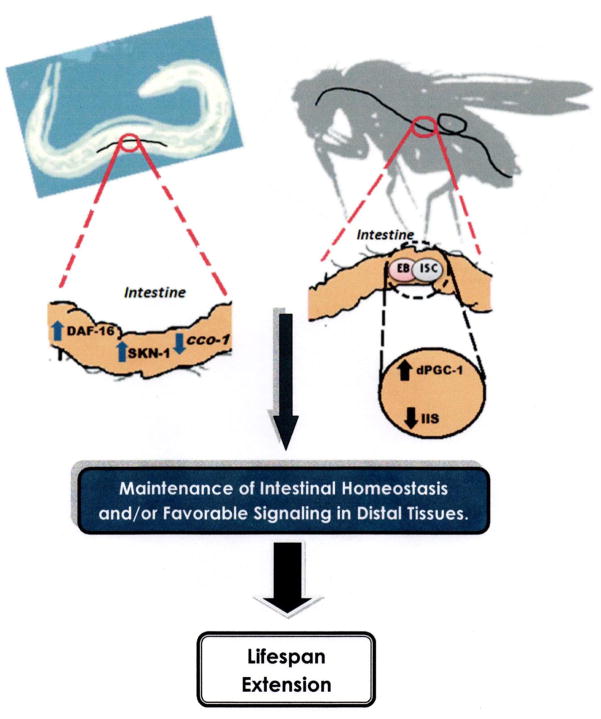Figure 1. Intestine-specific alterations in gene expression can extend lifespan in C. elegans and D. melanogaster.
In the worm, the intestine is an important target organ for insulin/IGF-1 signaling (IIS)-mediated longevity. Overexpression of either DAF-16 or SKN-1 in the intestine leads to an increase in longevity. Furthermore, knock-down of cco-1, a mitochondrial complex IV subunit, using an intestine-specific promoter driving a cco-1 hairpin construct significantly increases worm lifespan. In the fly, a moderate reduction in IIS in intestinal stem (ISC) and progenitor (enteroblasts; EB) cells can extends lifespan. At the same time, up-regulation of dPGC-1, the Drosophila PGC-1 homolog, in ISCs/EBs also promotes longevity. Taken together, these findings point to the intestine as an important target organ for interventions that delay aging in invertebrate model systems. An emerging theme from these studies is that maintaining intestinal homeostasis may be important for the health and vitality of aging animals.

